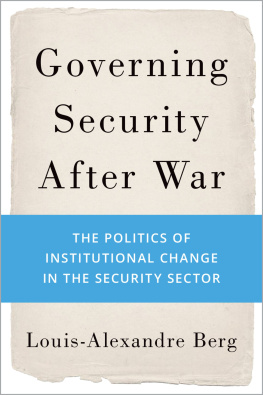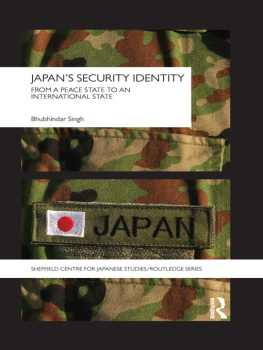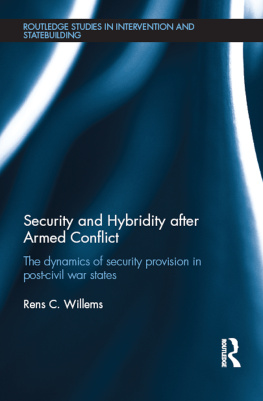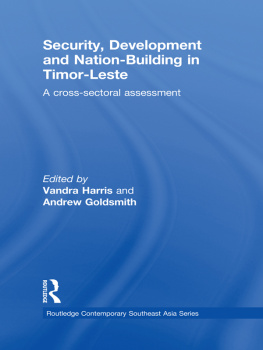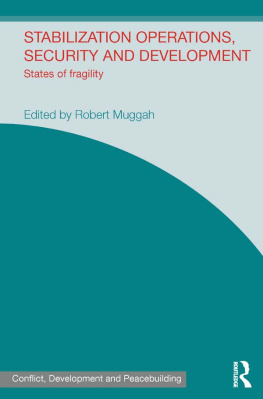Louis-Alexandre Berg - Governing Security After War: The Politics of Institutional Change in the Security Sector
Here you can read online Louis-Alexandre Berg - Governing Security After War: The Politics of Institutional Change in the Security Sector full text of the book (entire story) in english for free. Download pdf and epub, get meaning, cover and reviews about this ebook. City: Oxford, year: 2022, publisher: Oxford University Press, genre: Science / Politics. Description of the work, (preface) as well as reviews are available. Best literature library LitArk.com created for fans of good reading and offers a wide selection of genres:
Romance novel
Science fiction
Adventure
Detective
Science
History
Home and family
Prose
Art
Politics
Computer
Non-fiction
Religion
Business
Children
Humor
Choose a favorite category and find really read worthwhile books. Enjoy immersion in the world of imagination, feel the emotions of the characters or learn something new for yourself, make an fascinating discovery.
- Book:Governing Security After War: The Politics of Institutional Change in the Security Sector
- Author:
- Publisher:Oxford University Press
- Genre:
- Year:2022
- City:Oxford
- Rating:3 / 5
- Favourites:Add to favourites
- Your mark:
Governing Security After War: The Politics of Institutional Change in the Security Sector: summary, description and annotation
We offer to read an annotation, description, summary or preface (depends on what the author of the book "Governing Security After War: The Politics of Institutional Change in the Security Sector" wrote himself). If you haven't found the necessary information about the book — write in the comments, we will try to find it.
management, and oversight. Yet, we know little about why these efforts succeed or fail. Efforts to restructure security forces in Iraq, Libya, South Sudan, Timor-Leste, and the Democratic Republic of Congo ended amidst factional fighting. Similar efforts in Liberia, Sierra Leone, El Salvador,
Mozambique, and Bosnia and Herzegovina helped to transform security forces and underpin peace. What accounts for the mixed outcomes of efforts to restructure security forces after civil war? What is the role of external involvement on these outcomes?
In Governing Security After War, Louis-Alexandre Berg examines the political dimensions of security governance through systematic, cross-country comparison. Berg argues that the extent to which state policymakers adopt changes to the management and oversight of security forces depends on internal
political dynamics, specifically the degree to which leaders need to consolidate power. The different political strategies leaders pursue, in turn, affect opportunities for external actors to influence institutional changes through means such as conditions on aid, norm diffusion, or day-to-day
participation in decision-making.
Drawing on an original dataset of security governance and field research in Liberia, Bosnia and Herzegovina, and Timor-Leste, as well as mini-case studies of Iraq, Afghanistan, South Sudan, and Somalia, Berg draws out novel implications that help explain the recurrence of civil war and the impact of
foreign aid on peacebuilding. Moreover, Berg provides practical recommendations for navigating the political challenges of institutional change in conflict-affected countries. Ultimately, Governing Security After War seeks to explain the success and failure of international assistance in war-torn
countries and sheds light on the politics of peacebuilding.
Louis-Alexandre Berg: author's other books
Who wrote Governing Security After War: The Politics of Institutional Change in the Security Sector? Find out the surname, the name of the author of the book and a list of all author's works by series.

